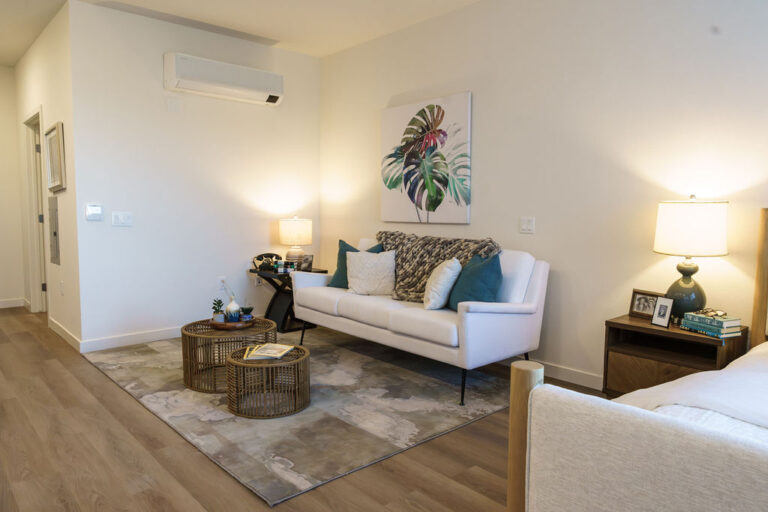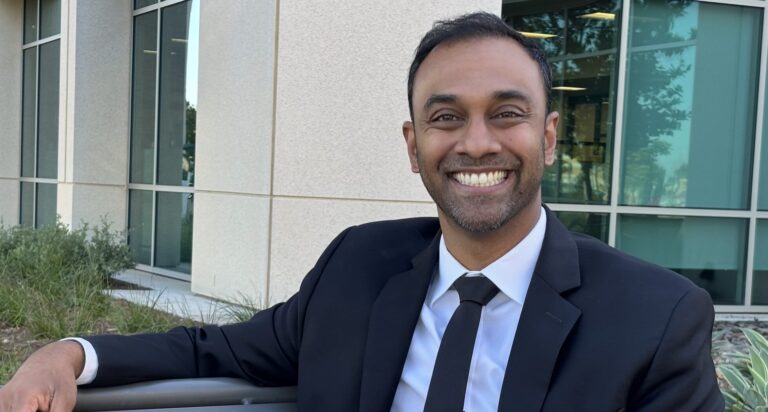By Melanie Slone
Rosario Reyes, 760-410-7710
rreyes@caregivercenter.org
In the US today, it is estimated that more than 53 million people are providing unpaid care for a family member, according to the National Alliance for Caregiving and AARP.
National Family Caregivers Month (NFCM) is celebrated every November to recognize and support these family caregivers.
Family caregivers need to take care of their own physical and mental health to be able to care for their loved ones.
We spoke with Rosario Reyes, Community Outreach Worker with Southern Caregiver Resource Center (SCRC), who is her own parents’ caregiver even as she works helping others care for their family members.
Rosario tells us about the Latino community. “There are many caregivers in our community because we often take care of our elders, but a lot of people still don’t call themselves caregivers.”
She explains that the first step is to realize that you are a caregiver; you may live with the people you care for, live close to them, visit them and help with certain tasks, or even live in another country. “There’s what we call the long-distance caregiver, the person who lives here in the county but coordinates care for loved ones in Mexico,” Rosario says.
Being a caregiver takes a toll. Rosario tells us that she lives in a duplex shared with her parents and has been their caregiver for years. “Sometimes it bothered me that I couldn’t have my own life, my plans, because they needed something,” she shares. “At times I felt stressed because they asked me to do things for them,” she remembers.
Rosario explains that caregivers often feel that way, which is why it’s important to get help. “Before we realize it, we’re already caregivers and it’s important to realize it because we need a specific type of assistance.”
Helping a family member with bills, taking them to and from the doctor’s office, coordinating care with others…it’s all stressful.
“We don’t know it, but it’s really hard,” says Rosario. “It takes time. Time with my own kids who were still little, and if I wanted to do something for myself, I couldn’t.”
Many caregivers don’t talk about their situation. “Sometimes we say we’re okay when we’re not,” says Rosario. “We’re super stressed, we don’t take care of ourselves. We don’t take such good care of our family members.”
But “we need to get educated and find help to do better,” she says.
Help for Caregivers
When Rosario started working for Southern Caregiver Resource Center (SCRC), she realized she was a caregiver.
SCRC offers services to family members of adults with a chronic or disabling condition. Rosario says the center helped her understand why sometimes she felt bad, why she was angry with her parents.
“I’ve learned that things can be done better and differently,” she says. “And still take good care of them.”
The services offered are focused on helping the family caregiver, the person who is taking care of others, says Rosario. “Our company’s logo is taking care of those who care for others,” she says.
“There are programs that help you organize your time…There’s specialized education for the caregiver about their loved one’s illness, so they can better handle the situation.”
SCRC’s services fall under the county’s Aging and Independent Services and are free and bilingual.
“We have one-on-one counseling, long-term counseling, support groups, family counseling, specialized training, legal and financial assistance, and a class for when people care for someone with memory loss or dementia,” says Rosario.
The center covers San Diego and Imperial Valley counties. Rosario and her coworker Maricela cover North San Diego County. “People can call me as the outreach person,” says Rosario. They can also visit the web page or the main office in Chula Vista.
SCRC does not ask about immigration status, income, or medical insurance, says Rosario. The only requirement to be considered a caregiver is that they help with a family member’s daily tasks, coordinate help, or give financial assistance.
A lot of people don’t ask for help because it’s taboo, says Rosario. “That’s a lot of what I as an outreach worker teach them,” says Rosario.
Rosario asks people to reach out. “We’re not alone,” she says. “There’s free assistance, like ours. And other organizations. You can find them at churches, support, assistance. But we have to realize first that we’re caregivers, that it’s tough, and that there’s help.”




